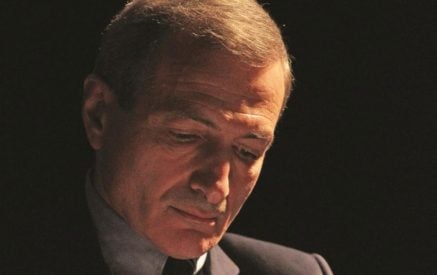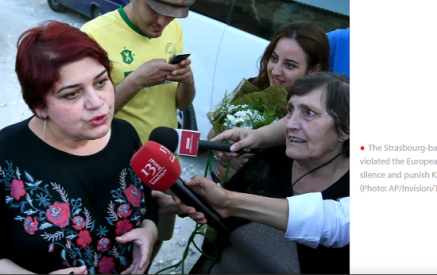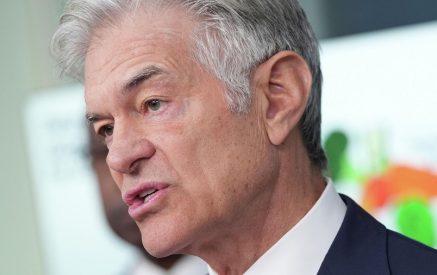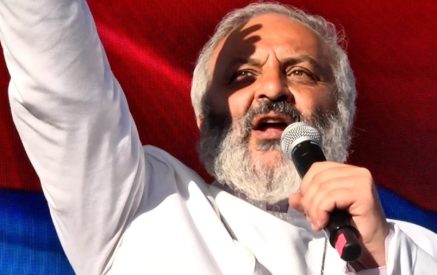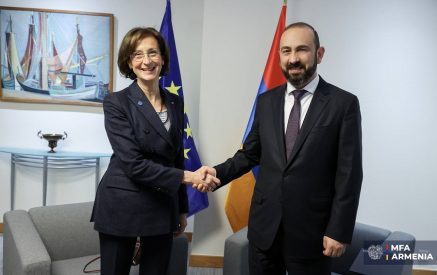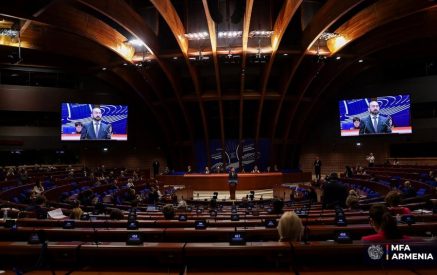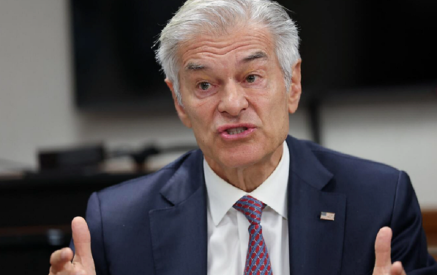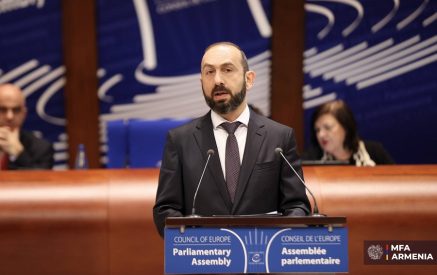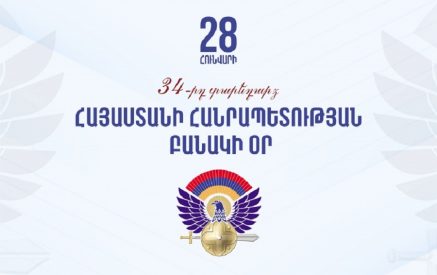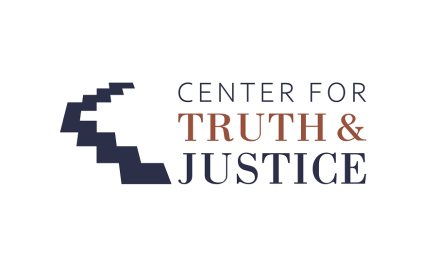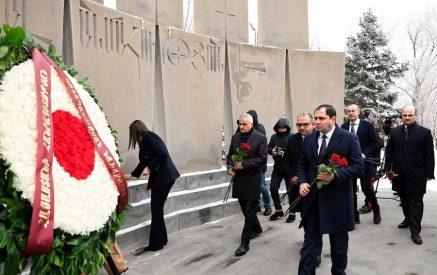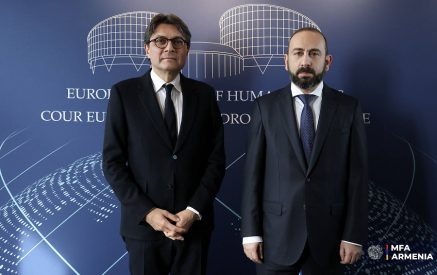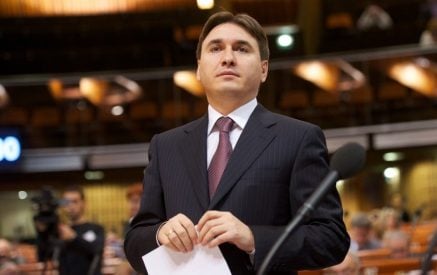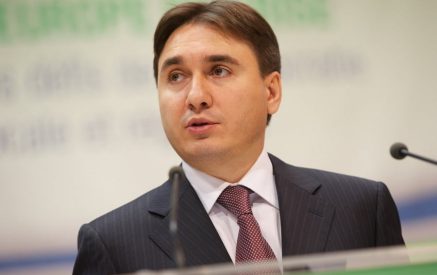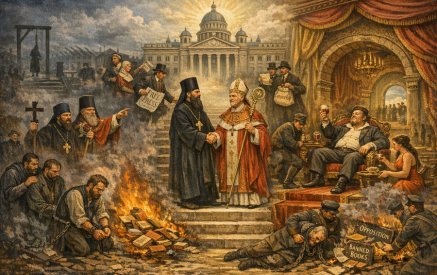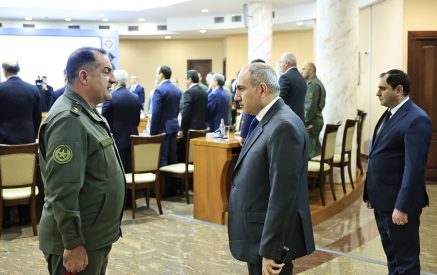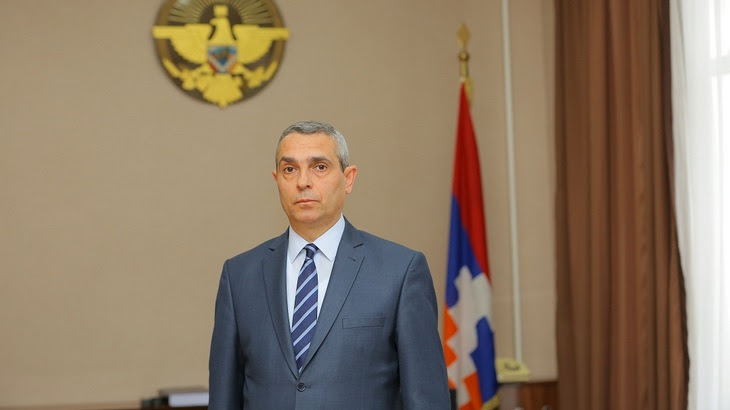– The issue of refugees and internally displaced persons (IDPs) is one of the key problems in the process of the Azerbaijan-Karabakh conflict settlement. It should be noted that this problem occurred as a consequence of the destructive policy of Azerbaijan aimed at the forceful suppression of the realization of the right to self-determination by the Armenian population of Artsakh. This is very important in view of both the responsibility for the current situation and the methodology of resolving the issue of refugees and displaced persons. It is obvious that, first, it is necessary to eliminate the origin of the conflict and only after this to start eliminating its consequences.
The authorities of Artsakh and Azerbaijan have radically opposite approaches to the issue of refugees and displaced persons. While Baku considered the issue of refugees and IDPs mainly as a tool to get some political or propaganda dividends, Artsakh perceived the problem of refugees as humanitarian and tried to alleviate the situation of refugees and IDPs throughout the conflict. Unlike oil-rich Azerbaijan, Artsakh did not create ostentatious tent camps for refugees and did not politicize this issue. Artsakh provided this category of victims of the conflict with minimal living conditions under the roof. To date, our state, without any international support, continues to build houses for the refugees and IDPs who have returned to their former places of residence liberated from occupation. In particular, one of the priority issues in the program of the President of the Artsakh Republic Bako Sahakyan for 2017-2020 is resolving the social problems of the Armenian refugees from Azerbaijan who have found refuge in Artsakh.
Read also
The issue of Armenian refugees from Azerbaijan is constantly in the focus of attention of the authorities of the Republic of Artsakh. Moreover, the protection of their rights and interests is enshrined in the annual programs of the Artsakh Republic Government as one of the important directions of the Republic’s foreign policy.
– You have noted exactly – without any international support. The Armenian refugees from Azerbaijan do not have international status, and they do not benefit from any international programs, unlike the Azerbaijani refugees. The rights of the Armenian refugees from Azerbaijan are completely ignored by international structures. They explain this by the unrecognized status of the Republic of Artsakh. But what is the difference for refugees to live in a recognized or unrecognized country? The fact is that they exist, and the fact is that their rights were grossly violated by Azerbaijan: they were persecuted on ethnic and religious grounds and their lives were at risk…
– Surely, the situation, whereby the refugees and IDPs living in Artsakh are completely forgotten by the specialized international organizations is extremely abnormal and outrageous. We believe that depriving these people of international protection and support is violation of their fundamental rights. We have repeatedly brought this position to the attention of representatives of international organizations.
At the recent meeting with the OSCE Chairperson-in-Office, Slovak Foreign Minister Miroslav Lajcak I have noted that in case of Artsakh, the OSCE should not be solely limited to the settlement process, leaving the human dimension without proper attention. In particular, I stressed at the meeting that the process of the Azerbaijan-Karabakh conflict settlement had been lasting for over 27 years, and this fact imposes certain obligations on the OSCE that, due to the unsettled conflict and the ongoing attempts by Baku to isolate Artsakh, the people living in the Republic, including refugees and IDPs, are not restricted in exercising their fundamental rights and freedoms.
– Lately, some progress has been achieved in the issue of refugees in Artsakh. For example, recently in Yerevan, the head of the Artsakh Union of Armenian Refugees from Azerbaijan had the opportunity to brief the OSCE Chairperson-in-Office on the problems of this category of persons. I know that this is your initiative. Please tell us briefly about the essence of the meeting.
– Sarasar Saryan briefed the OSCE Chairperson-in-Office Miroslav Lajchak on the situation of Armenian refugees in Artsakh. He noted that up to 30 thousand Armenian refugees live in the Republic of Artsakh, who are deprived of international support and assistance, also due to the position of the Azerbaijani authorities impeding specialized international organizations’ visit to Artsakh. Sarasar Saryan invited the OSCE Chairperson-in-Office to visit Artsakh and to get acquainted with the situation of Armenian refugees in Artsakh on the spot.
– Do you think that the approaches of international structures to the issue of the Armenian refugees from Azerbaijan living in Artsakh will change? Can we hope that our refugees will get international status, will be able to benefit from some international humanitarian programs and so on?
– I don’t think that this will happen soon, but our Ministry is doing everything for this, and a vivid confirmation of this was the initiated-by-us meeting between the head of the Artsakh Union of Armenian Refugees from Azerbaijan and the OSCE Chairperson-in-Office. I hope that the voice of the representative of the Armenian refugees from Azerbaijan was heard.
In addition, we have established contacts with similar organizations of Armenia.
– As to the negotiation process on the settlement of the Azerbaijan-Karabakh conflict. We know that Prime Minister of Armenia Nikol Pashinyan proposed to return Nagorno Karabakh to the negotiation table, which the President of Azerbaijan categorically rejects or sets the conditions that in this case the so-called Azerbaijani community of Nagorno Karabakh should also participate…
– First of all, it should be noted that the issue of restoring the trilateral format of negotiations is the most accurate indicator of the degree of readiness of official Baku to real progress in the process of peaceful settlement of the Azerbaijan-Karabakh conflict. This conviction is based on the indisputable fact that the trilateral negotiation format was the most productive. Consequently, opposition to the restoration of the most effective format of negotiations, we believe, means to artificially delay the settlement process.
It seems that official Baku tries to turn the negotiations into an endless process, hoping that it will help to postpone the inevitable recognition of the Republic of Artsakh as an independent state by the international community. To this end, the Azerbaijani authorities try to distort the essence of the conflict in every possible way and to present it as a territorial or intercommunal one. In fact, the Azerbaijani refugees from Artsakh have become an instrument for Azerbaijan to achieve its foreign policy goals.
– On December 16, 2005, the UN General Assembly adopted the Basic Principles and Guidelines on the right to legal protection and reimbursement for the victims of gross violations of international human rights standards and serious violations of international humanitarian law.
– The issue of refugees and IDPs will not have a specific content until the answer to the main question – on the responsibility of the parties to those who, as a result of the conflict, lost their right to live and develop freely in their homeland – is given.
The Azerbaijani SSR, as the Republic-initiator of the mass enforced exodus of its Armenian citizens, clearly demonstrated its position related to this category of persons. Neither the former AzSSR nor the present Azerbaijani Republic took steps towards the recognition of their political and legal obligations to their former citizens and assumed any moral or financial responsibility for their deeds. None of the more than 400 thousand Armenian refugees from Azerbaijan, having left this country under the direct threat to his life, has got any reimbursement for his material, property and moral losses.
According to the Basic Principles and Guidelines on the right to legal protection and reimbursement for the victims of gross violations of international human rights standards and serious violations of international humanitarian law, the victims of such violations should receive full and effective reimbursement, including restitution, compensation, rehabilitation, satisfaction and guarantees of non-recurrence of what happened. The reimbursement should be provided for any economically assessable damage in the prescribed manner and adequately to the gravity of the violation.




